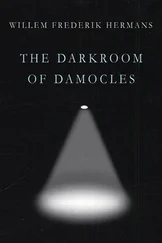I asked about her health, my pen poised above my reporter’s notebook, seeking safety in a familiar role. A deluge commenced. The notepad’s first many pages are a scribbled stutter-fest of unfinished sentences. “Had to pick up the papers for the name change, but you have to go to the office of birth records in the Seventh District for—, no, wait a minute, it’s the Eighth because the hospital I was born in—, waaall, no, let me see now, it maaay be …” “I’m so busy every day, I don’t have time for dilation, and they tell you to dilate three times a day, four times at first, waaall, you can do it two times probably, but—, there are six of these rods, and I’m only on the number 3 …”
The operation, I noted, had not altered certain tendencies—among them, my father’s proclivity for the one-sided rambling monologue on highly technical matters. When I was young, he had always operated on two modes: either he said nothing, or he was a wall of words, a sudden torrent of verbiage, flash floods of data points on the most impersonally procedural of topics. To his family, these dissertations felt like a steel curtain coming down, a screech of static jamming the airwaves. “Laying down covering fire,” we had called it. My father could hold forth for hours, and did, on the proper method for wiring an air conditioner, the ninety-nine steps for the preparation of authentic Hungarian goose pâté, the fine print in the regulatory practices of the Federal Reserve, the alternative routes to the first warming hut on the Matterhorn, the compositional revisions to Wagner’s score of Tannhäuser . My father had mastered the art of the filibuster. By the time he was finished, you’d forgotten whatever it was you’d asked that had triggered the oral counteroffensive—and were as desperate to flee his verbal bombardment as he was to retreat to his cone of silence.
“I could have gone to Germany, they cover everything,” my father rattled on, “but they make you jump through so many hoops, and, waaall, in the U.S., the surgery is vaaary expensive and it’s not in the front line, but, now, in Thailand, they have the latest in surgical techniques, the hospital has an excellent website where they go into all the procedures, starting with …” “I have to change the estrogen patch twice a week, it was fifty micrograms before the operation, but after the operation it gave me hot flashes, now it’s twenty-five micrograms and …” “I got the first hair implant in Hungary, five hundred thousand forints, it came out pretty good, but it’s still short in front, but maybe my hairdresser can do something, waaall, I could get another one, but it might be better in Vienna, yaaas but to go just for—, I’m taking hair growth medication, so—”
I quit trying to get it down verbatim.
“Long speech abt VW cmpr stolen,” I wrote. “Thieves evywhre. Groc store delivry this wk., many probs.” “Great trans sites online, evrythng on Internet, many pix dwnloaded.”
My attempts to cut through his verbal eruption—“Why have you done this?”—only inspired new ones.
“Waaall, but you couldn’t do it for a long time, waaall, you could, but it was risky. In Thailand, the hospital has greaaat facilities, faaantastic. In every room, bidets with special sprayheads, a unique nozzle that …”
I asked if she’d been dressing as a woman before.
“No. Waaall … Maybe a little … I have to pick up the papers to get my passport changed, and I need to get my name changed with the Land Registry, but first you have to go to the municipality office and get a certificate to bring to the Ministry of …”
“Why didn’t you tell us before you had the operation?”
“Waaall … I didn’t talk until everything was all right, successful . Dr. Sanguan Kunaporn, he was faaantastic, trained with one of the leading surgeons of vaginoplas—, his name was—, it’s—, no, wait—waaall, he is well-known as the best of—”
I lost my patience.
“You never talk to me. You aren’t talking to me now.”
Silence.
“Hello?” I ventured. Hallom?
“Waaall, but it’s not my fault. You never came here. Every year, you never came.”
“But you—”
“I have a whole dossier. They stole our property.” My father was referring to the two luxury apartment buildings that my grandfather once owned in Budapest. They had been commandeered by the Nazi-allied state during the Second World War, nationalized under the Communist regime, and then sold off to private owners after 1989. “You showed no interest whatsoever.”
“What am I supposed to do?”
“You’re a journalist. You should at least somewhere mention it. They’re consorting with thieves. Your country of birth, you know.”
“Mention to whom?” I asked, thinking: the country of my birth?
“A family should work together to get back their stolen property. A normal family stays together. I’m still your father.”
“You’re the one who—”
“I sent you the notice about my school reunion, and you never came,” my father said. The surviving members of my father’s high school class in Budapest had gathered in Toronto three years ago. Guilty as charged: I didn’t attend. “I sent you a copy of the movie I made of the reunion, and you never said anything.” She wasn’t finished. “One of my classmates lives near you, right in Portland, and I e-mailed you the Google map with his address, and you never contacted him. You never …”
I wasn’t sure how to respond to this writ of attainder.
After a while, I said, “I’m sorry.”
Then: “You said you were going to write my life story, and you never did.”
Had I said that?
“Is that what you want?”
We both went mute. I scanned my list of questions. What I wanted to ask wasn’t on the page.
“Can I come see you?”
I could hear her breathing in the silence.
In the arrivals hall at Ferihegy Airport, a line of people waited to greet passengers. I reluctantly scanned the faces. Maybe I wouldn’t recognize him as her. Maybe she wouldn’t be here. Maybe I could turn around and fly home. Salutations in two genders were gridlocked on my tongue. I wasn’t sure I was ready to release him to a new identity; she hadn’t explained the old one. Did she think sex reassignment surgery was a get-out-of-jail-free card, a quick fix to a life of regret and recrimination? I can manage a change in pronoun, I thought, but paternity? Whoever she was now, she was, as she herself had said to me on the phone, “ still your father .”
I spotted a familiar profile with a high forehead and narrow shoulders at the far end of the queue, leaning against an empty luggage cart. Her hair looked thicker than I remembered his, and lighter in color, a henna-red. She was wearing a red cabled sweater, gray flannel skirt, white heels, and a pair of pearl stud earrings. She had taken her white pocketbook off her shoulder and hung it from a hook on the cart. My first thought, and it shames me, was: no woman would do that.
“Waaall,” my father said, as I came to a stop in front of her. She hesitated, then patted me on the shoulder. We exchanged an awkward hug. Her breasts—48C, she would later inform me—poked into mine. Rigid, they seemed to me less bosom than battlement, and I wondered at my own inflexibility. Barely off the plane, I was already rendering censorious judgment. As if how one carried a purse was a biological trait. As if there weren’t plenty of “real” women walking around with silicone in their breasts. Since when had I become the essentialist?
“Waaall,” she said again. “There you are.” After a pause: “I parked the camper in the underground lot, it’s a new camper, a Volkswagen Caaalifornia Exclusive, much bigger than my last one, the biggest one they make, the next-to-the-fastest engine, I got it from the insurance for the old one, it was one year on the market because the German economy is bad, the first one I bought was six years old, eighty thousand marks—forty-six thousand euros—fifty thousand dollars, the new one they sold to me for forty thousand euros, the insurance paid twenty thousand euros, it’s parked by the guard booth, it’s safer there, waaall, nothing’s safe, thieves stole my old camper right out of the drive, I had the alarm on, they must’ve disabled it, climbed the fence, thieves were probably watching the house, they saw no one was home for weeks and—”
Читать дальше












